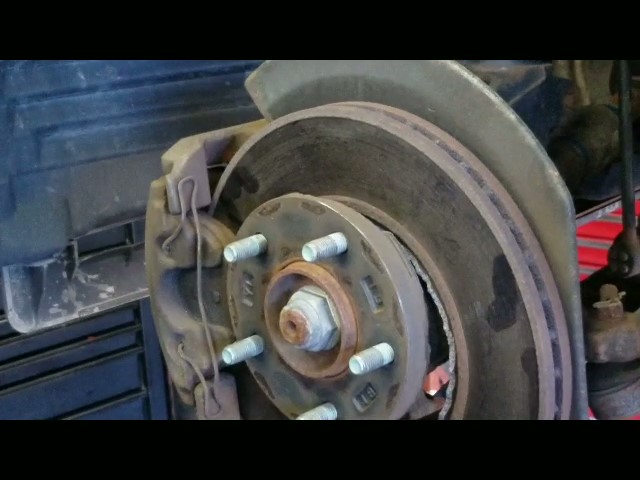Posted on 4/25/2019
The Season of Pot holes is upon us! Winter is hard on everyone and everything, yes that means on your roads and cars as well. That is why April is Car care Aware month. Its time to freshen up for the Spring. The biggest threat to your car right now is pot holes and neglect of maintenance. Pot holes meh, am I right? They come back every spring like flowers. They are caused by water seeping into the cracks of the pavement, then freezing and thawing, and then being driven on causes the pavement to weaken and eventually give. If you lucky your city is on them like white on rice. Either way they are a danger to your car. Alignments, Tires, Hubs, your exhaust, your under carriage and depending on how deep it is anything within its evil grasp. It can cause leaks, dents and compromise the integrity of parts and sometimes clips can come off and parts can start to drag. Is there any way to avoid them? Unfortunately, there’s no guarantee, that’s because your car can ... read more
Posted on 10/26/2018

Rotors What are they? Rotors, with assistance from the brake pads and calipers, cause your car to slow down and/or stop. They are the circular metal part that the brake pads rub against to cause the wheels to stop spinning. They are as important as brake pads for stopping. Why do they go bad? Heat isn’t a friend of metal parts. Heat from friction can cause warping and wear. For those of you that remember LP records, think of records that were left in the sun. Signs you need new rotors. Squeaking, rough stopping, vibrating when slowing, When your rotors go bad you will hear it and feel it. Make it over to your mechanic as soon as possible. Helpful Info Rotors should be replaced every 30-70 thousand miles. And when you change the rotors you should change your brake pads too. Since the rotors and brake pads rub together the brake pads are ‘mated&rsquo ... read more
Posted on 9/11/2018
The next week and a half is looking to be very wet and, as we are already seeing, flooding has begun. Since our flood water is salt it can be very damaging to vehicles. We’d like to remind everyone that driving thru salt water is a big no-no. Salt water is corrosive. It will eat away at your car. Anything over 4 inches will damage a sedan sized vehicle. Remember tow trucks will not rescue you until the water recedes, so as I like to say, Better safe than sorry. So, If you think the water will reach your under carriage I repeat, do not drive thru. Electrical system and combustion systems do not like water and your car is basically these two systems. Also water plus electricity equals electrolysis (which causes the blue crude you sometimes see near battery terminals) If you find yourself in any of these scenarios, here is my advice to you: If you are driving and find yourself facing a flood, turn around! Do not attempt to go thru the water. You never know what is unde ... read more
Posted on 8/3/2018

So, your precious babyies are off to college! You want to make sure they’re prepared and safe. You have their dorm room supplies, class schedules, and you have all the emergency numbers tattooed to their arm. (ok, so maybe not tattooed). Have you checked on their car? Teenagers are notorious for letting car problems slide until the last minute. So, is their car up to scratch? Let’s see. ENGINE- Does the car have any check engine lights on? FUNCTION-Does everything work properly? (AC, Radio, Seat belts, turn signals?) WIPER BLADES-Do the wiper blades wipe away the rain? LIGHTS-Headlights, Brake lights, cabin lights, running lights? All glowing brightly? EMERGENCY CAR KIT-Do they have jumper cables and an emergency kit? BASIC CAR CARE-Do they have the know how to change a car tire? Can they read tire pressure? Can they execute basic car care? FLUIDS ... read more